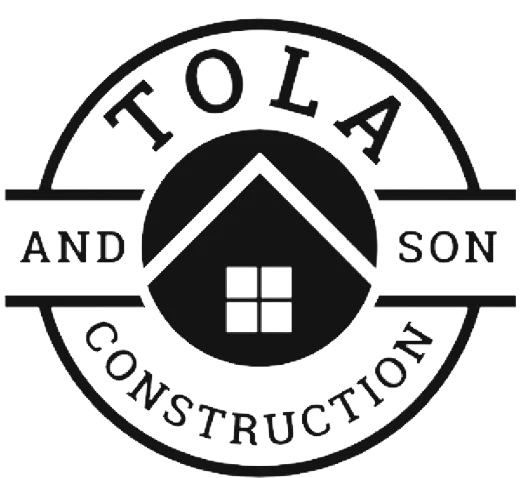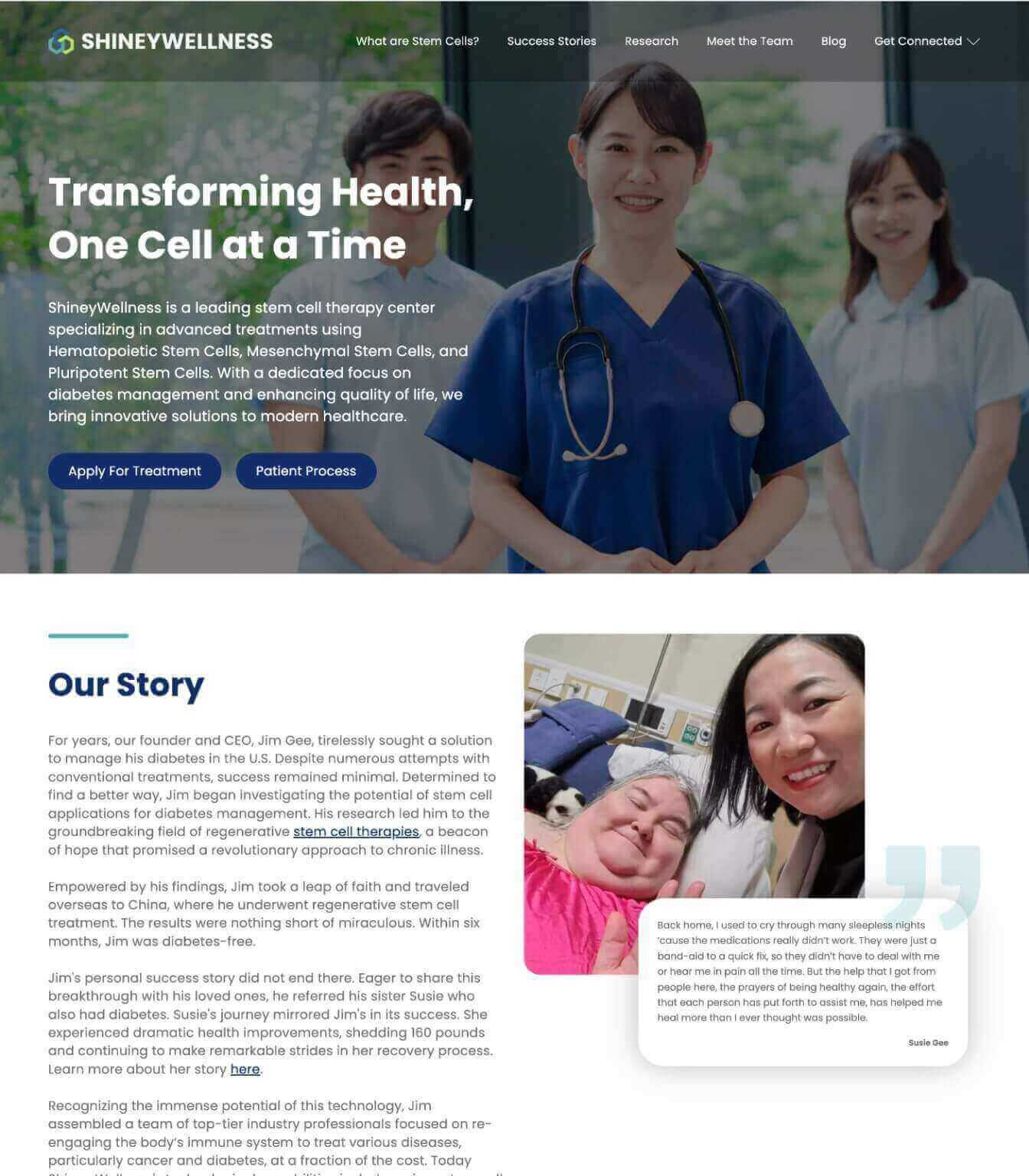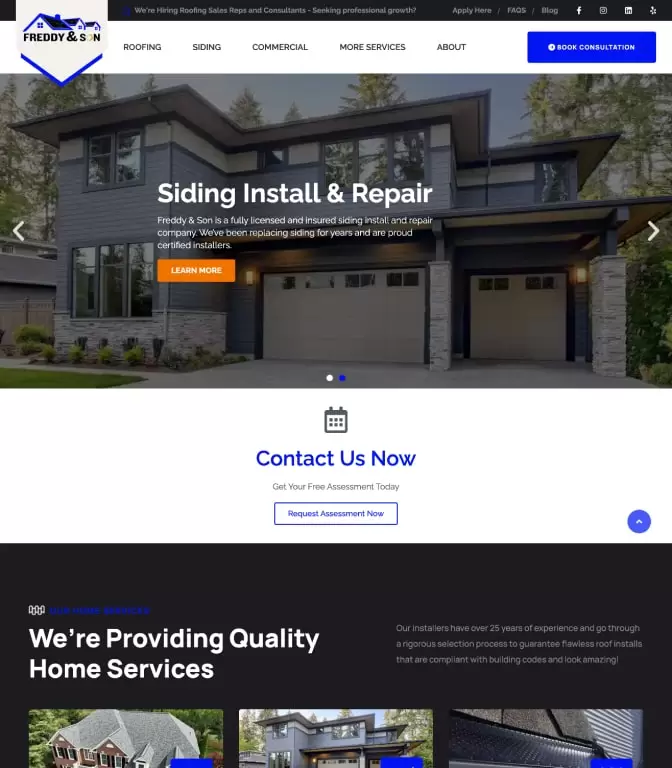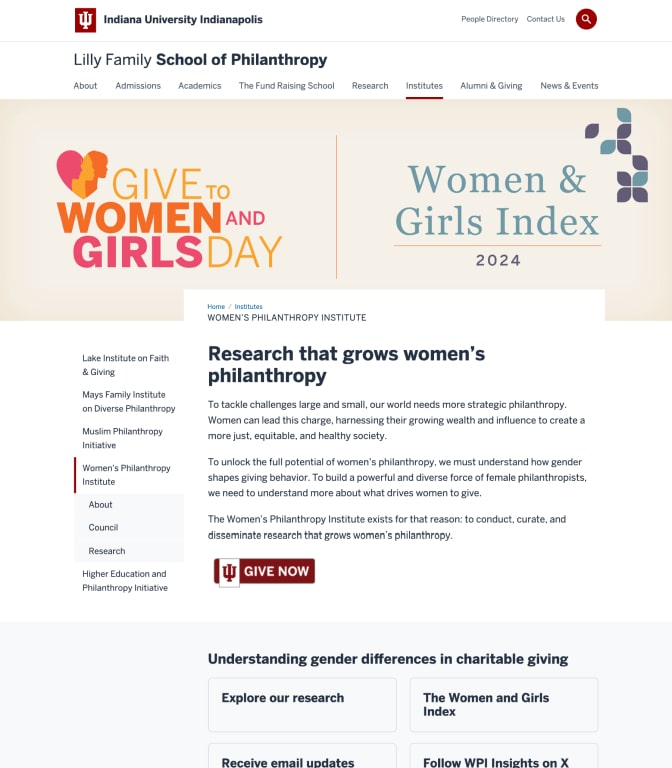Your restaurant business is up and working, the place is set up and decorated perfectly, you found the best waiters and chefs to work for you and your website is finished and looking good. But after all of this hard work, your customers still can’t find you in the first page of google results after typing “local Mexican restaurant in New Jersey”. You need restaurant SEO!
What is going on? This is an important topic that we have to talk about and it’s utilizing your restaurant’s website SEO to its limits. Let’s dig deeper into what SEO is and how can you make it work for you and bring you many new customers.
What is local restaurant SEO?
The first thing that you need to understand in order to boost your website traffic and make it more popular on the search engines is what SEO is and how does it work. Local SEO, or Search Engine Optimization, is the term given to increasing a web page’s appearances in search engine results. The method typically involves utilizing keywords that the targeted audience is likely to search for, while also including context associated with the surrounding area.
Unlike standard SEO, local SEO focuses on improving a web page’s results in a specific region. It is an efficient way to gain more visitors for your website. Search engines have a specific set of rules that they follow, and in order to get the best results when people are searching for your website, the first thing you need to do is understand how search engines work.
How do search engines work?
The best way to effectively improve your websites traffic is to first understand how can people find it using search engines. In order to get your website to be the first result in any search engine your customer may use, you need to know how that search engine operate, and how does it sort websites with their respectful ranking in the results page. Let’s explain it in a simple way.
- Making an index: The first thing any search engine does when you input any request is to scan its index of web pages for content related to the terms that you have typed in. Search engines do these things with a program called ‘web crawler’. This program is very unique, as it automatically browses the world wide web and stores all of the information about the websites that were visited. For each website that the web crawler visits, it makes an identical copy of that particular website and adds its URL to a specific index. This process iterates for every link on the page, copying and indexing every website that it stumbles upon. The result of this process is a huge index database of many webpages – every webpage the web crawler has visited. Some of the pages can’t be visited by the web crawler because they stop it from accessing them. These pages won’t be indexed along with the pages that no one links to. Search engines use this cluster of information and it becomes the search engine’s index. An interesting fact is that every website that the search engine recommends to you, has been visited by a web crawler.
- Ordering results: After the whole process of making an index of website pages, the search engines then sort the result, so they can show you the most important search results, according to their logic and ranking system. But what is the logic behind ordering all of the website search results? The best algorithm that most of the search engines use to improve the web search result is PageRank. To simply explain how PageRank works, it’s basically a contest of popularity. Your goal here is really important – to rank among the highest search results, so more people will see your website and your business. Without this step, you might experience a lot of problems when your customers try to manually find your website online. If they can’t find your restaurant in a few simple web searches, they will just give up or find some other local restaurant that ranks higher than yours. The more links that point to the website and the more traffic the website has, it will rank higher on the index page and it will contain more valuable information, according to the search engines. These things aren’t determined manually, the search engines use many mathematical algorithms to sort and rank the websites, so you get the most correct results for your desired search. The search engines also look for many more properties when ordering the search results. They check if the website is from a trusty domain and how frequently is the website being updated.
When you master this skill, you will attract any customer that might search for a local restaurant in your area. For example, if a person from Chicago is searching for a new place to visit and try out, in most cases he will do a few simple web searches using Google. Now imagine that you have a fully optimized websites that will rank in the first page of Google search. This would do wonders for your website, giving you enormous amount of website traffic. With your growing amount of traffic on your website, the more people will be interested to come and visit your local restaurant, which means more potential customers – the sales will go through the roof!
Knowing all of the search engines algorithms by heart won’t help you much, what you should instead do is use tips given from the people that made them. Google is one of the biggest search engines today, and it recommends the following steps to make sure you get the best possible results in Google search rankings:
- When making your website pages, don’ try to focus too hard on search engines, try to make pages primarily for your users. Don’t try to scam your way into getting organic traffic by presenting different content and services that your restaurant doesn’t provide, just to get more visitors. It’s not good and furthermore it’s counterproductive – your visitors won’t be happy when they search for a Chinese restaurant and then they discover that you don’t sell any Chinese dishes after 10 minutes of browsing your website. This practice is commonly referred to as “cloaking” and we highly recommend for you to avoid it.
- Your website should look nice, clean and organized. The hierarchy of the website should be well defined and any of your website pages should be reachable from at least one static text link. This won’t just boost your performance in SEO, this will also make it more visually stimulating and appealing for the customers, which will result in more visits and more time spent browsing your products, offers, promotions and your website in general.
- You need to have a useful site that is rich with information, with pages that clearly and accurately describe your website content. Try to avoid adding any unnecessary attributes that won’t contribute to your visitors. One more thing that you should make sure of is that your <title> elements are accurate and correctly described. Don’t forget to do the same for all of your ALT attributes also!
These are just some of the tips that you can implement to get the best possible results in your website SEO. With these few advices we have merely scratched the surface of SEO. Their purpose is to give you more information and knowledge on how the search engines actually work and how can you use that knowledge to your own advantage in making the best possible website for your local restaurant.
Restaurant SEO Audit
The first step to improving your local restaurant business with SEO is to see how good are the current rankings of your website compared to the other websites. This step is very crucial for our future improvements of your website’s SEO. We will try to explain how does SEO audit work and what are the results that you can expect from it.
SEO Audit – What is it and what to expect from it?
Let’s try to give you more information on what SEO audit really is. Search engine optimization audit is a standard procedure is the analysis of your website based on factors that are important to the search engines in terms of organic search results. It dives into the technical infrastructure, on-page and off-page elements in order to determine issues, opportunities, and recommended fixes. So, to put it in simple terms, you can think of an SEO audit as an evaluation of a website that grades the site for its ability to appear in search engine results pages.
Audits are completed by checking each step on your audit list and finding any issues that need to be repaired or improved to boost your page’s search engine performance. Think of it as a report card for your site’s “Googleability”. Your site might be wonderful, well-designed, and clean, but if search engines can’t read your website, the pages you put hard work into may not even see the light of day.
To prevent this from ever happening we are offering to you a professionally designed plan on SEO audit that you can use to your advantage – to adjust and to adapt your website so that it reaches its full potential. Let’s start right away by explaining the features and results of SEO audit in detail.
Technical Analysis
The first step to delivering you a complete SEO audit is determining if your website is working properly in its current condition. That’s why this step is called technical analysis – we analyze your website from many aspects and depending on the results, we start improving it and making it rank higher in search engines. This step is very important for the beginning of your website’s SEO, because it gives us all the necessary information on what the problems are and what should we do to solve them.
If you have a bad foundation for your website, you won’t be able to improve and develop it properly. After all, you wouldn’t start building a house on a bad terrain, would you?
After finishing the process of technical analysis, we are left with two big groups of things that the analysis gives us and those groups are accessibility and indexability.
Both of these groups are very important for the future development of your website. We will try to give you more information on how each of these groups will give us useful information that can be used in our advantage. Let’s start with the first group:
Accessibility
Accessibility is connected to your customer’s ability to access the website, and Google’s ability to access and deliver your website to your customers. This is very important as you can imagine, if your potential customers are unable to find your page, or even see it, there is no point in trying to improve the website and create new content – it simply won’t be seen by anyone.
There are certain things that you have to pay attention to, when addressing your website’s accessibility rating. You should check your robots.txt file and robots meta tags. These two are very crucial as they have the ability to restrict access to certain parts and areas of your website. If you didn’t set this up right, it can be really devastating for your website. Imagine that you have a gallery page on your restaurant’s website that is restricted to users and Google – that would be a total disaster! These things can happen, sometimes the webmaster might have accidently blocked certain pages and disabled Google from accessing them. But don’t worry, this can be fixed, the important thing is to get enough information about accessibility of your website.
Both meta tags and robots.txt files need to be checked manually by our professionals to make sure they are working correctly and that they are set up properly. Another important aspect of your website are XML sitemaps. Their purpose is to create a map for Google crawlers, so they can be efficient. You should be aware of the fact that XML sitemap should be properly formatted and submitted to webmaster tools account so that it can be easily accessed if there is a need to change it, or adjust it differently.
Another thing that is very important for optimizing your site’s accessibility is overall website architecture. This is basically how long would it take for a user to go from the homepage to the desired location. This should be optimized as much as possible, because of the fact that the fewer clicks it takes to get to the destination page, the easier it will be for the crawlers to access that particular page when doing the indexing.
The problem that is also very common is having issues with redirects. As your website grows and develops, you might want to delete or relocate some of the content. When that happens, crawlers won’t be able to access the pages that have been relocated or deleted, and they won’t show on the index page as a result. In order to allow access and resolve this issue, you need to create a redirect leading them to the places where you moved the original page.
These are all the things that you should do to rank better in the Google search, considering accessibility, but what about the users who are not satisfied? The first thing that your website should enable to its users is to freely browse it. If your potential customer is not able to browse the website freely, he will quickly become uninterested and leave your website. In that regard, your website speed has to be exceptional at any given time.
Considering the speed of your website, even if you are more into having a nice and interactive interface, you have to consider how that affects the speed of the website and what kind of an impression it leaves on your users. Most of the users browse the web looking for fast and simple information, if they don’t find a satisfying amount of the information they are looking for, they will just go to some other site, and our goal is to stop that from happening.
You should also consider adapting your website for the mobile users. Nowadays, most of the people use their mobile phones to find quick and reliable information, so your website needs to be mobile friendly. When you adapt your website to work perfectly on mobile phones, you will leave the choice to your future customers – they can find your website fast and easily on a desktop computer, or on their mobile devices. That is one huge step to fully optimizing your website’s SEO and ranking on the search pages.
Indexability
Now that we have finished the accessibility analysis for your website, we are ready to go to the next step – indexability. When it comes to the search engines, and Google especially, accessibility and indexability go hand in hand. You need to have both of them running properly in order for your website to be shown on the Google search pages, so it can be delivered to your end used on a silver plate.
The easiest way to understand the difference between accessibility and indexability is that accessibility refers to crawlers being able to find and access your website’s pages, while the indexability refers to those particular pages being presented within the search engine after being accessed.
The important thing to understand here is, even though crawlers might find and see your content, they won’t necessarily show these pages to your potential customers. The most common reason why this happens is Google penalty.
You also need to understand that crawlers work differently on different websites. If you are one of the big companies who have a lot of content, your pages will be indexed as soon as possible. But if you are an individual blogger or a website with occasional new content and a normal amount of traffic, your website’s pages will be indexed more slowly.
Don’t start panicking if this happens to you, this happens in some cases with Google. It might not be the Google penalty, it might just be an accessibility issue or some other minor problem that needs to be fixed. If you actually get the penalty, you will receive a message from Google in your webmasters tool account.
When you identify the reasons for receiving the Google penalty, your next course of action should be rectifying the issue and requesting the reconsideration from Google after the issue has been resolved. Don’t try to prolong this penalty, because this will only have a negative effect on your website and on your future business, take your time and deal with the problem.
On–page analysis
After the initial step of technical analysis of your restaurant’s website has been done, it’s time to start the next big step in optimizing your website, and that is on-page analysis. What we did in the previous step was making sure that everything is in order on the website itself, so both people and crawlers can visit and access your website and all of its content. Now that we are certain that everything is in a working condition, it’s time to consider the pages themselves.
This is a really important step of the SEO process, because your restaurant business can’t continue climbing on Google search ranking if it doesn’t have the proper content. To see if your restaurant’s website has the proper content that is working without any troubles or errors, we need to view the on-page analysis of your restaurant’s business. There are two ways to view the on-page analysis, and those are:
- General restaurant’s website content issues
- Individual restaurant’s website page issues
General restaurant’s website content issues
Let’s try to explain what do we mean when we say general content issues. When you create any post on your website, it is a necessity to have a good structure and it has to make sense to the readers and potential customers. If we are to look at this from a SEO perspective, it is a pretty bad tactic to have various different topics that don’t have any common ground with your website’s main idea and theme.
You are running a restaurant business, you should focus on posting only the content that is directly connected to your area of work. That means that you should post articles about the amazing food that you are serving, maybe give your customer a better view on the culture behind that food. You can also post articles about the perks and advantages of your restaurant’s location and even descriptions and reviews of your restaurant’s theme, interior and general impression itself.
The topics that you should avoid on your website are any topics that aren’t directly associated with your line of business. Don’t try to write about musical festivals happening in your town, or about some of the upcoming big games. It is a bad idea to try and attract new customers with the content that has nothing to do with your restaurant, and furthermore this will make your website look like a cluster of random information, which is really bad regarding search engines and SEO.
There are a lot of bloggers who are receiving enormous amounts of money to just promote and do reviews of various products and content. Maybe this does seem like a lucrative way to make some money in a short amount of time, but it can have a disastrous consequence on your website in the future – this will make it really hard for any kind of SEO work done on your website. With no SEO that can be done to reach the full potential of your website, there is no new visitors to your website, which means there are no new customers for you. The lessons you can learn from this is that you shouldn’t promote products that aren’t yours, or that have no correlation with your business. You are running a restaurant business, you shouldn’t promote products like watches, pans, cutlery or T-shirts (unless the T-shirts are with your logo that is). You should focus on promoting only the products you are currently selling to your customers, even if you can make some extra cash promoting other products on the side. It won’t help on your future development regarding your restaurant’s website.
The problem that most of the article writers and bloggers encounter is duplicate content and keyword cannibalization. The reason why some of the websites start having major issues with duplicate content is because they try too hard to promote themselves and they start to repeat their posts and articles. It is fine to write a similar, or even the same article every now and then. This will most definitely lead more traffic to your website, as more and more visitors that are interested in that particular topic will be coming to your website. But this is the main reason why the problem of duplicate content occurs on people’s restaurant websites.
What happens when you have two or more articles with very similar, or even the same content? Let’s say that you have a few similar articles on your restaurant’s website, promoting the same dish. Although this sounds like a great idea, why shouldn’t you have more articles promoting your best dish? But in reality, this isn’t an ideal strategy that you want to use on your restaurant business, because it leads to one big problem.
The big problem that happens here is that Google gets confused when trying to index all of the similar articles. These things shouldn’t happen, because this leads to major indexation issues and Google starts indexing more pages than there actually are on your website. You should avoid this, because it will only make your SEO harder and longer to properly implement. You should only have one article that is properly describing a particular dish that your restaurant is selling. There is no problem in creating articles about some new menus and promotions, where you happen to mention that same dish, the trick is to not have multiple articles that are promoting the exact same thing on your restaurant’s website.
Almost the same thing happens with keyword cannibalization. To explain it simple, keyword cannibalization means that the owner of the restaurant website is trying to rank higher on the Google search page for the same keyword from multiple different pages. These words are usually words that are specific to the restaurant’s niche, like “Mexican”, “Italian”, “pizza”, “burger”, etc.
The main problem that occurs here is that Google doesn’t know which restaurant’s web page is the most relevant for a specific search that your potential custom is performing. When all of your little pages and articles want to rank for the same term, this could get really problematic.
When trying to search your website, Google’s crawler will go through it and see a lot of different pages that all match the search term criteria for the given keyword. Google will then have to choose between all of those pages for just one that it thinks is the “best” and most “relevant”. This will lead to the problem that all of your other restaurant’s pages and articles won’t be ranked as high on the Google search page, even though they might be better and more relevant information for your potential customers – they just won’t have a chance to see them.
So, if your potential customer is searching for the best hamburger in your local area, the Google search page might only show an article on your website that briefly mentions your hamburgers. It might not seem interesting to the customer at the first sight, because it can be any page from your restaurant’s website that has the word “hamburger” on it. But we want to show the customer the most relevant article about the term he had searched for, we want him to see the article about our amazing hamburgers, with their pictures and prices.
If you made this mistake expecting to gain some extra SEO value by using the same keywords in multiple pages and articles, you are doing the exact opposite. This won’t only rank your whole website lower for that particular keyword, this will also make you miss other amazing SEO opportunities that you can implement. Some of those opportunities are:
- Conversion rate: Why would you try to rank all of your pages with the same keyword, when you can just choose the one that is converting traffic better than the rest of them? This is a pretty common trick, instead of spending your time and energy on pages that aren’t converting traffic as good as the best page for a given keyword, you should just focus all of your effort on that particular page and try to improve it. It will bring you more traffic and it will stop your other pages, that aren’t so successful for that given keyword, to rank on Google’s search page. You can use this to your advantage by utilizing other pages for other keywords that you find fitting. That means that you can see which keywords on your restaurant’s website has the highest conversion rate, and you can promote that specific article. It might be the name of your most popular dish, or it can be something completely different, you just need the information so you can act accordingly.
- Content quality: If you have multiple pages that are good at converting traffic and you are targeting them with the same keyword, they should also be about the same general subject. What you risk here is duplicate content, content that is of a poor quality, multiple replicates that are certainly going to lower your odds of receiving referrals and links. Let’s say, for example, that you have two pages on the same keyword: “pizza”. If you have two articles on your website that have high conversion rates for this keyword, but they aren’t about the same topic, this will hurt the SEO of your website. Having the same keyword, one article can be about your pizzas as the product, and other article can be about the origin of pizza, and they will rank the same in Google’s search page. So, if you are targeting a specific keyword, you should always make sure it is in the borders of the same topic.
- Internal anchor text: Let’s say that you are trying to target different pages with the same subject. The mistake that you are doing here is that you are missing on the chance to concentrate the value of internal anchor texts all on one page. Having one page that has 100 organic visits in a day is way better than having four pages that have 25 visits each.
- External links: This one is really important – external links can leverage SEO value of a certain page targeting one keyword. But if you don’t do this correctly, and you have multiple different pages that are targeting the exact same keyword, this will lead to your external links being split between all of those different landing pages. The effect that this will have on your restaurant’s website is sharing all of the external link value that you are generating among different pages on your restaurant’s website. As we mentioned before, this is a bad thing – you should focus on getting all of the traffic on one particular page that is generating the most of your traffic. The most common thing is that the most popular dish of your restaurant will generate the biggest amount of traffic. Use this to your advantage and try to advertise your other products on other pages, you can leave the backlinks to them on this particular page. Doing it this way, your restaurant’s page that brings in the most traffic won’t get clustered with other keywords, and it will help in generating traffic to your other pages that promote other dishes.
Few tips on solving the keyword cannibalization problem on your restaurant’s website
If your restaurant’s website is encountering keyword cannibalization problems, there’s nothing to worry about! We would be glad to show you a few simple tips on how to solve this problem, so we can get to our next topic – individual restaurant’s website page issues.
But, before we go into details on individual restaurant’s website page issues, let’s first talk about the tips and the solutions for solving keyword cannibalization on your restaurant’s website. There are two great solutions for this problem, and those are:
- Using canonicals: So, let’s say that you have the same keyword across each of your restaurant website’s pages. The simple solution for this is that instead of replicating the exact same keyword on every page that mentions it, you should try to use variations of this one and link back to the canonical source for that specific term. If you do it like this, not only will you make your articles and content more interesting and more enjoyable for the potential customers to read, you will also allow Google to know which version of your specific keyword is the most relevant for the given search query. While it is true that you should optimized your restaurant website so that it becomes more successful in Google search results pages, you should also keep in mind the quality of your user’s experience. If you do this step correctly, you are ensuring a good SEO of your website for the specific keyword that you frequently use, but you are also giving your potential customers an enjoyable experience and relevant information while they are reading your content. This will ultimately lead any of the crawlers that Google is using to the specific URL that represents the master copy of a page that your customer is searching for. If you have multiple pages on your restaurant’s website that are mentioning hamburgers, you can set a master copy page for the keyword “hamburgers”. Google will only show that specific page of your restaurant’s website when your customers are searching for hamburgers.
- Using 301 redirects: Another way to deal with keyword cannibalization on your restaurant’s website is to use 301 redirect to send the relevance and the link juice to one single page. Before doing this procedure, you should identify all the pages that are currently experiencing this problem and choose the best version to work with. After you have done this, you should use the 301 redirect on every “copy” page, that contains the given keyword, to the version you picked. You should usually pick the version that has the highest rate of traffic conversion on your restaurant’s website. The result of this process is that your visitors will land on the correct version that you picked, and furthermore, this will make Google rank the chosen version highest in Google search query for that specific keyword.
Let’s try to sum up the advices considering duplicate content and keyword cannibalization on your restaurant’s website. You shouldn’t be focusing too much on ranking high on Google for one single keyword, you should try to use longer, specific phrases that are describing your restaurant business the best. They won’t only narrow your potential user’s search results, they will also give you the pleasure of not having to deal with any of these mentioned problems. Also, longer phrases will bring more users to your website that are looking for a specific thing you are offering – which means more potential customers for your business! So, instead of focusing all of your efforts on keyword like “hamburgers” or “pizzas”, try to make it a bit longer and more specific. Try to use keywords that are more descriptive about the dishes you are offering to your customers. Some good examples of those keyword phrases can be something like “extra chilly hot pizzas” or “all-natural beef hamburgers”. Of course, this is just an example, you should use the keyword phrases that best describe your restaurant and your restaurant’s dishes in particular.
Now that we have covered general content issues, let’s talk about individual restaurant’s website page issues.
Individual restaurant’s website page issues
Individual page issues shouldn’t be confused with general content issues. This problem refers to the way each of your restaurant website’s pages are structured and written. It is not necessary to explain that good content is one of the most important factors in getting good Google rankings. So, let’s talk a little bit more about the structure and the content of your articles that are promoting your restaurant.
Each of your articles should be well-structured, clean and easy to understand. When writing the article for your website, you should always bear in mind how will it look from the end user’s perspective. A common practice that you should implement in your article writing routine should be to read the final article after you finished it, but you should also read it from the perspective of a user who just found your restaurant’s website on Google and who is visiting your website for the first time. This can give you an important insight in what can be improved and what looks good on the restaurant website. This can also help you understand which of the products that you are offering are appealing to the customers, and which one of them are underperforming. It’s really important to know which one of your dishes is the most popular – with that information you know which product to focus your marketing on.
Articles that have a good structure and quality content won’t just rank higher in the Google search, they will attract more potential customers, for sure. When attracting new visitors and customers, some of them might really like your article, and they will want to share it with their friends. Having a top-quality article shared on social networks is crucial in converting more traffic to your website. Without a well-structured article with relevant content, SEO won’t be able to reach its full potential and bring traffic to your website. If you have an article about your best-selling pizza, find a really good writer to restructure that article and make sure everything looks great, you won’t regret it.
Now, let’s talk a bit about the URL of your website. When creating URL for your pages, the important thing that you should remember is that it needs to be nice, clean and it should describe the content correctly and briefly. You should try to avoid clunky and massive URLs – they don’t look visually nice and they aren’t good for SEO. If there is a need to use multiple separate words, it is always better to use hyphens than spaces. It is strongly recommended to have your main keyword in your URL. Your restaurant’s website URL should only contain your business name, or a few more words, if that particular URL is already taken. You can add “eat-at-business name” or “business name-pizzas/hamburgers”. Try to keep it simple and focused.
Following the same logic, it is a common sense that your title should also include the main keyword and follow the same rules like the URLs. Don’t try to make your title too long, or to add unnecessary words and phrases to it. If you are writing an article about your best dish, the title should be “Best business name pizzas in the town”. It is simple, it gives enough information to your potential customers, and it has enough keywords that your potential customer might actually search for on the Google search engine.
As for the content itself, make sure that your articles are long enough. In the modern SEO world, you are required to have at least 500 words to be visible on the Google search engine. But, it’s not just about the number of the words in your article. You shouldn’t try to make your articles longer by adding random words in it.
The important thing that your articles should do – they should provide value to the reader, while being clean and unique. They should also have latent semantic indexing keywords, which are words similar to the topic of your page or your website. Those keywords relate to the context of the content around them. Proper grammar of your articles is a must. They should also be written in a way that makes them easy for the end user to read and understand them. Basically, you should provide your readers with enough information about your dish that they would want to come and try it out – convince them that it’s not just another common meal, try to explain to them in which way is your product amazing, with just few simple words.
When talking about the articles on your website’s page, we have to mention the images. All of your images should be in a good place, they should have good quality and they should be optimized for your website. This is really important, because this gives you a better chance to rank higher on Google image search, which will eventually lead to more converted traffic to your website. When someone shares on of your articles on a social network, the article needs to have a quality image of the product you are selling. Your potential customers need to see the best picture of the hamburgers you are selling and it needs to be optimized when sharing the article on any social network platform.
In the past, meta descriptions were used as a very important SEO tool, and they really worked wonders. Nowadays, search engines have changed their algorithms, so meta descriptions aren’t as useful as they were before. But that’s no reason to forget them completely, they can be a powerful promotional tool. Make sure that you include a nice and correct descriptions, as they can impact your conversion rate. Some of those meta descriptions can be any keywords that are related to your restaurant’s niche – the sky’s the limit.
Off-page analysis
When all of the previous steps have been completed, it’s time to talk about the strength of your domain. Everything that we have done in the previous steps is performed so that your website would become better and be more visible to the Google. The next big step in your website’s optimization is off-page analysis.
If we try to explain what off-page ranking factors are, they are basically the results of your hard work and dedication. They show each and every information about your website: how popular your website is, is your website trustworthy, are the people linking to your website and from which websites are they linking to it. This is a just a little preview of information that off-page analysis gives us.
The one of the important factors that you should take into account here is the trust factor. What does the trust factor mean, when it comes to your website’s SEO? It basically tells you how much is your website trusted by Google search engine. To put it simple, if you are staying away from all of the negative SEO practices (they are also known as black hat SEO), you will gain more trust on Google. Your restaurant’s website should start on the right foot, this is essential for its future development.
Being a trustworthy site is extremally important. Google is constantly updating and improving its search engine and algorithms, to try and find which sites are trustworthy, so there isn’t a chance to try and manipulate the system. Being a trustworthy site isn’t only good for your website’s SEO, it all speaks a lot about you, as a business. If you manage to create a good overall reputation, that is a huge step forward to becoming one of the best restaurant business in your local area, or even further.
The same logic can be applied when we talk about other big restaurants. If a restaurant is being involved in some sort of unlawful practices, like money laundering, it can lead to disastrous long-term consequences for their restaurant business. Not only that it’s illegal, if some restaurant is doing this and their customers start hearing about their actions, it would just drive them away. This is an absolute necessity, you should stay away from any illegal activities when it comes to your restaurant’s business.
The same logic can be applied when it comes to Google trust factor. You should do everything that you can to remain trustworthy on Google, and be sure to properly follow and abide Google’s webmasters guidelines.
Improving your off-page ranking factors can also be done by making sure that your unique content is popular among other bloggers, and most importantly, your readers. When you have a good content, promotion is the next big thing that gives you good off-page rankings, cementing your website’s integrity on the world wide web.
You should always keep in mind that every article you make is intended for your potential customers. If you are doing a good job and following these guidelines, your website should see a steady, but constant, increase in traffic over time. You should start seeing more social mentions, more referrals to your website, smaller bounce rates by the visitors, and ultimately more customers.
In a certain way, off-page analysis shows us how your visitors react to your website. This can provide us with the valuable information on what can we change on our restaurant website. The changes can be done immediately, so that your restaurant can start advertising its best articles and content to the potential customers. It is our goal that more people see and get informed about your great meals and share that information with their friends and family.
Plan of action and implementation
After we have done all of the necessary steps to examine what work should be done on your website, we are offering to you the last two steps for your website to become fully optimized and reach its full potential. Those two steps are our plan of action and implementation.
Plan of action
Now that we have all of the important information about your website, it’s time to make the plan of future actions for improving your website. We are going to formulate a detailed action plan to help you reach your desired goals. We combine your expectations with our experience to take the crucial steps that are needed to achieve your goals.
Each of our plans of action is carefully and professionally tailored for every single customer. We will analyze your website from every possible aspect and recommend the necessary steps that are needed for sky rocketing your website on the Google search engine.
The things that you can expect from our plan of action is top-quality reviews of your website with an in-depth analysis, combined with our recommended steps for the website’s improvement.
Our team consists of professionals that are highly respected in their line of work. We can assure you that our plan of action for your website will be the perfect thing that needs to be done, so your website can be seen by all the potential customers on the web.
Implementation
When the process of making the plan of action is complete, our team can start right away on the implementation of the plan on your website. We are going to take small, but vital steps, that will give you a concrete and measurable results that you can trace with every step we make together.
Team of our professionals will be available every step of the way, so you can contact them to let you know how the implementation is going, or you can ask them about any information about the process that you aren’t sure about.
We are dedicated and we are willing to work hard and improve every day, so we can keep being the best SEO service on the web.
Conclusion
Why does local restaurant SEO matter so much? Restaurant SEO is one of the most efficient ways for potential customers to discover your restaurant. If you are looking for a way to grow your business, you should definitely consider optimizing your website to earn the most traffic from search engines that you can.
Studies have shown that of all the ways people choose a new restaurant to go to, 80% of them find their perfect restaurant online. Furthermore, 60% of those people find it by using Google. If we take into consideration that only the top five search results on Google search engine account for 67.6% of all clicks, it is evident that restaurant SEO is very important for your business.
If your restaurant’s website achieves this kind of Google ranking, that would mean an enormous spike in your website traffic, more qualified leads and greater authority and credibility for your website. All of these small steps are ultimately leading from people that are just browsing the Internet and searching for an interesting local restaurant, to those same people becoming your new customers.
You also shouldn’t forget that your local competitors are more than likely already investing in SEO. This means that they are already benefiting from all of the perks that SEO brings: bigger exposure, more traffic to their websites and most importantly – more new local customers. The effect that this has on your business is local customers who will never even notice your restaurant, even though it might be much better than your competitors. They will never know that you even exist, and that can’t happen!
Our SEO services might be your only chance to stand out from the bunch of all the local restaurants and get in front of your potential customers. You don’t want all those people who are searching the Internet for a good local restaurant to keep missing out on your restaurant, do you?
Even if your competitors aren’t investing in SEO for their restaurants, this will give you a huge head start. This is a fantastic opportunity for your local restaurant to get noticed by all of those potential customers – the results will be obvious.
You are already aware of the fact that your restaurant is the best one around, but with a beautiful and simple website and top-quality SEO services, you can prove it to everyone!
Don’t waste more time thinking if you should optimize your website to convert more traffic, there is no need for that. The future is here, 95% of the people have access to the Internet, and all of them are using it on a daily basis. It’s time to use those numbers in your advantage and make your website the first search results for all of those potential customers.
We are 100% certain that our SEO services are the perfect fit for your website and we promise that you will be amazed with the results our SEO services provide. We are looking forward to creating something unique and amazing with you!
.




















